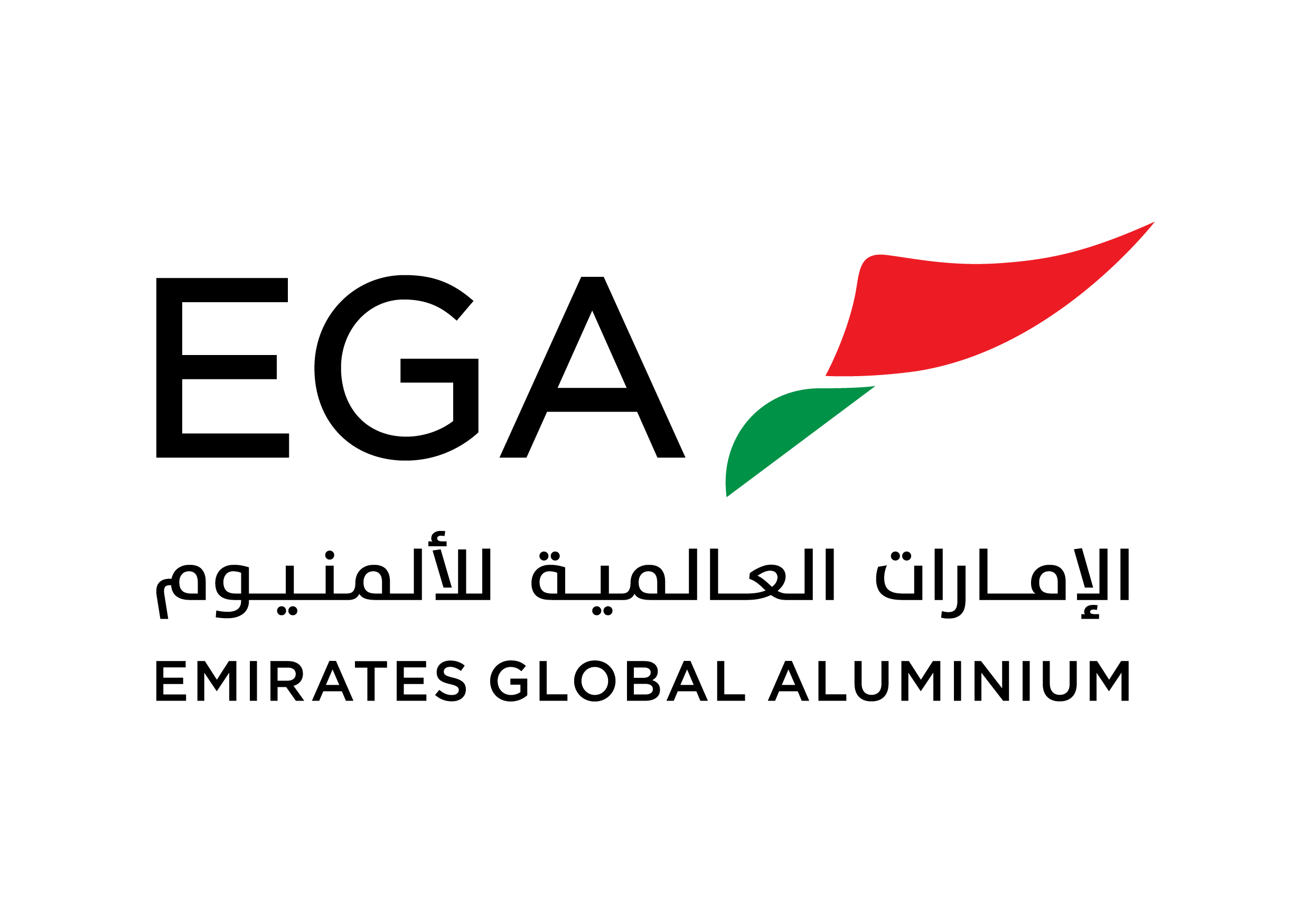EGA: Sustainable Aluminium Production and Biodiversity Conservation
ASI Certification helped EGA to formalise its approach to biodiversity and its conservation efforts for the critically endangered hawksbill turtle.
16 May 2023
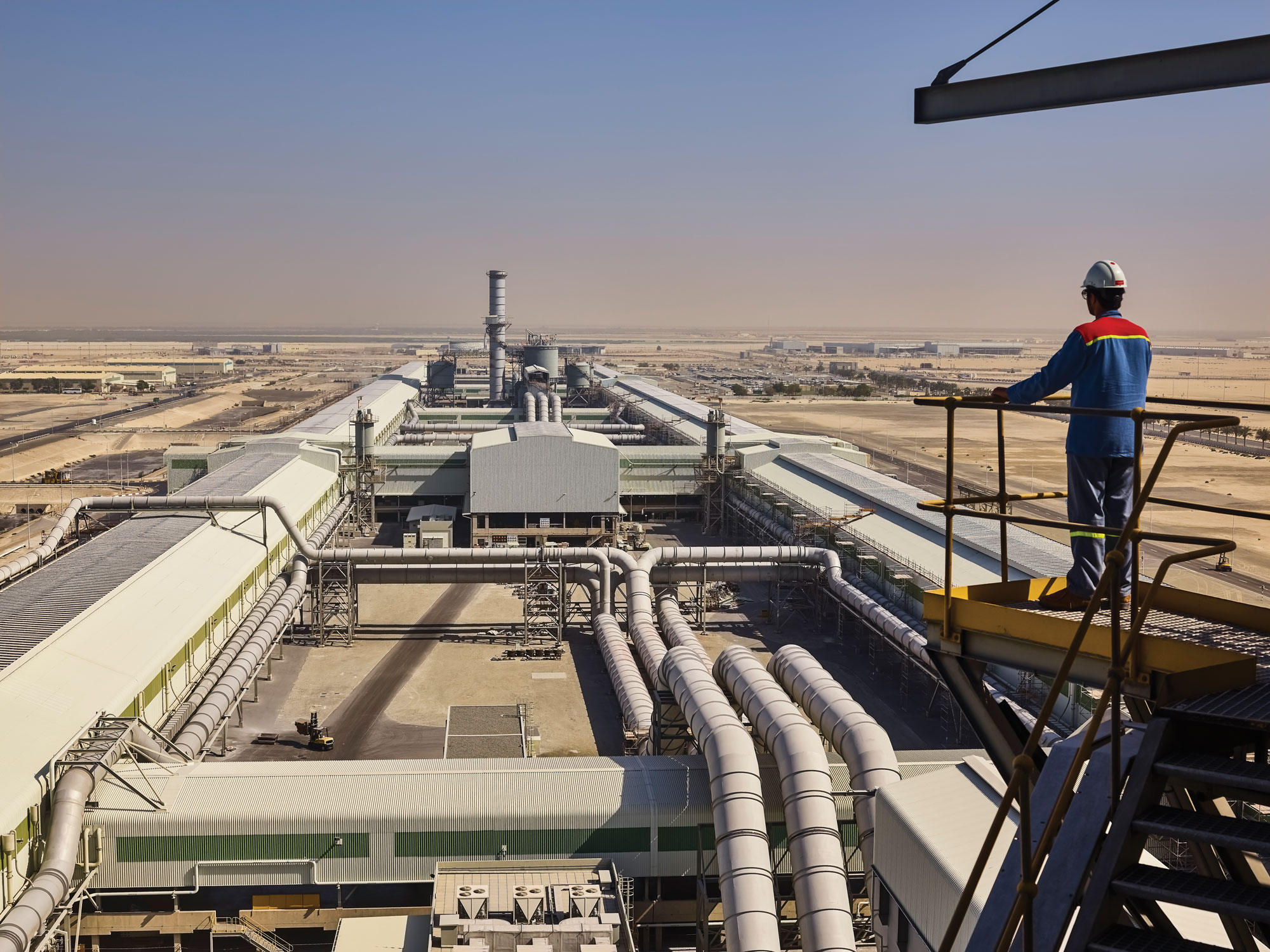
Located in the Emirate of Abu Dhabi in the United Arab Emirates (UAE), EGA's site in Al Taweelah is capable of producing more than 1.5 million tonnes of aluminium each year. This site includes smelting, casting, anode production, desalination and power generation facilities. In May 2019, the Al Taweelah site became the first in the Middle East to achieve certification against the ASI Performance Standard.
For EGA, ASI brings a consensus on what constitutes sustainable business practice for the aluminium industry. Not as decided by the industry, but as determined through a global multi-stakeholder standard setting process involving a diverse range of stakeholders.
Since becoming a member, EGA has been aligning their corporate sustainability approach to the ASI Performance Standard. Part of this transition has included formalising EGA’s conservation efforts including the development of biodiversity management and monitoring plans for the Hawksbill turtles that nest at the shoreline near their facility in Al Taweelah.
Managing Director and CEO Abdulla Kalban was first provided with details associated with ASI during a presentation given by ASI’s CEO, Fiona Solomon, at the International Aluminium Institute (IAI) in 2015. Mr. Kalban recognised the value of an independent third-party sustainability certification as an opportunity to measure EGA’s practice and performance against international expectations, also anticipating the value that would be perceived by downstream users of aluminium.
The ASI Performance Standard provides us with a global benchmark against which we can measure our performance and target improvements. It is not only important for EGA to implement industry best standards, but for the whole of the Middle East. We recognise the value that our customers attribute to the ASI Performance Standard and we intend to be part of a certified supply chain.
– Abdulla Kalban, Managing Director and CEO
First steps to ASI Certification
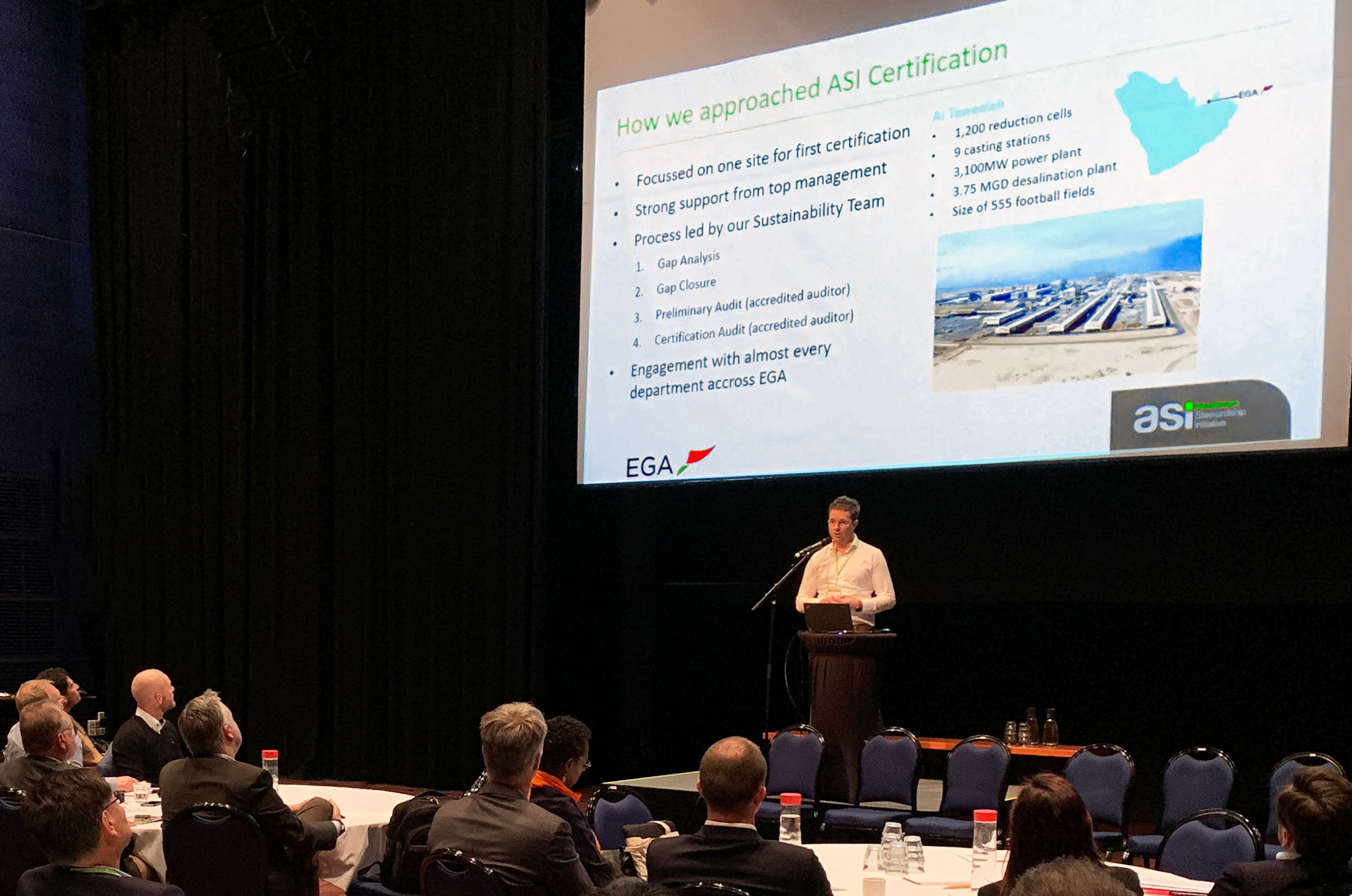
EGA’s certification to the ASI Performance Standard was led by EGA’s Sustainability Manager and required input and support from every corner of the organisation.
EGA opted to first certify their site at Al Taweelah as an opportunity to learn about the certification process for what is a relatively new standard for the industry. Following the successful certification of Al Taweelah, EGA is now in the process of aligning smelting and casting facilities in Dubai as well as planning for ASI Chain of Custody certification.
Our initial gap analysis identified that our ‘business as usual’ was well-aligned with much of the ASI Performance Standards criteria. However, we needed to tighten and strengthen existing procedures and policies in order to demonstrate full compliance.
– Steve Bater, Sustainability Manager
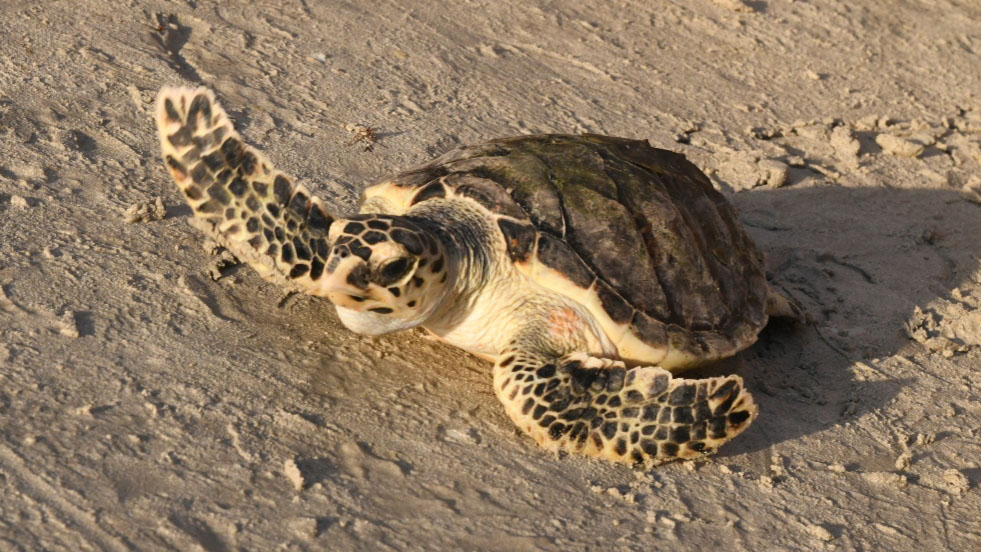
Hawksbill turtles are a critically endangered species due mostly to human impact. Hawksbill eggs are still eaten around the world despite the turtle’s international protected status, and they are often killed for their flesh and their stunning shells. They are also threatened by accidental capture in fishing nets.
One notable area where the company made improvements was its approach towards biodiversity management including conservation efforts associated with the Hawksbill turtles that nest at the shoreline in Al Taweelah. Since 2011, nearly 100 Hawksbill turtles have laid eggs at the shorelines adjacent to EGA’s facility with almost 7,000 baby turtles starting their lives in Al Taweelah.
ASI Performance Standard criterion 8.2 requires companies to implement and monitor a Biodiversity Action Plan, with time-bound targets to address material impacts identified through the biodiversity assessment conducted under criteria 8.1. As part of meeting this requirement of the ASI Performance Standard, EGA developed a Biodiversity Action Plan to formalise and coordinate conservation efforts and ensure alignment with international best practice. They established long-term plans and monitoring efforts continuing their conservation activities for the critically endangered Hawksbill turtle.
EGA have been protecting turtle nests since 2011, but, as a consequence of the ASI certification process we now have a formalised monitoring and communication plan
– Steve Bater, Sustainability Manager
Examples of change
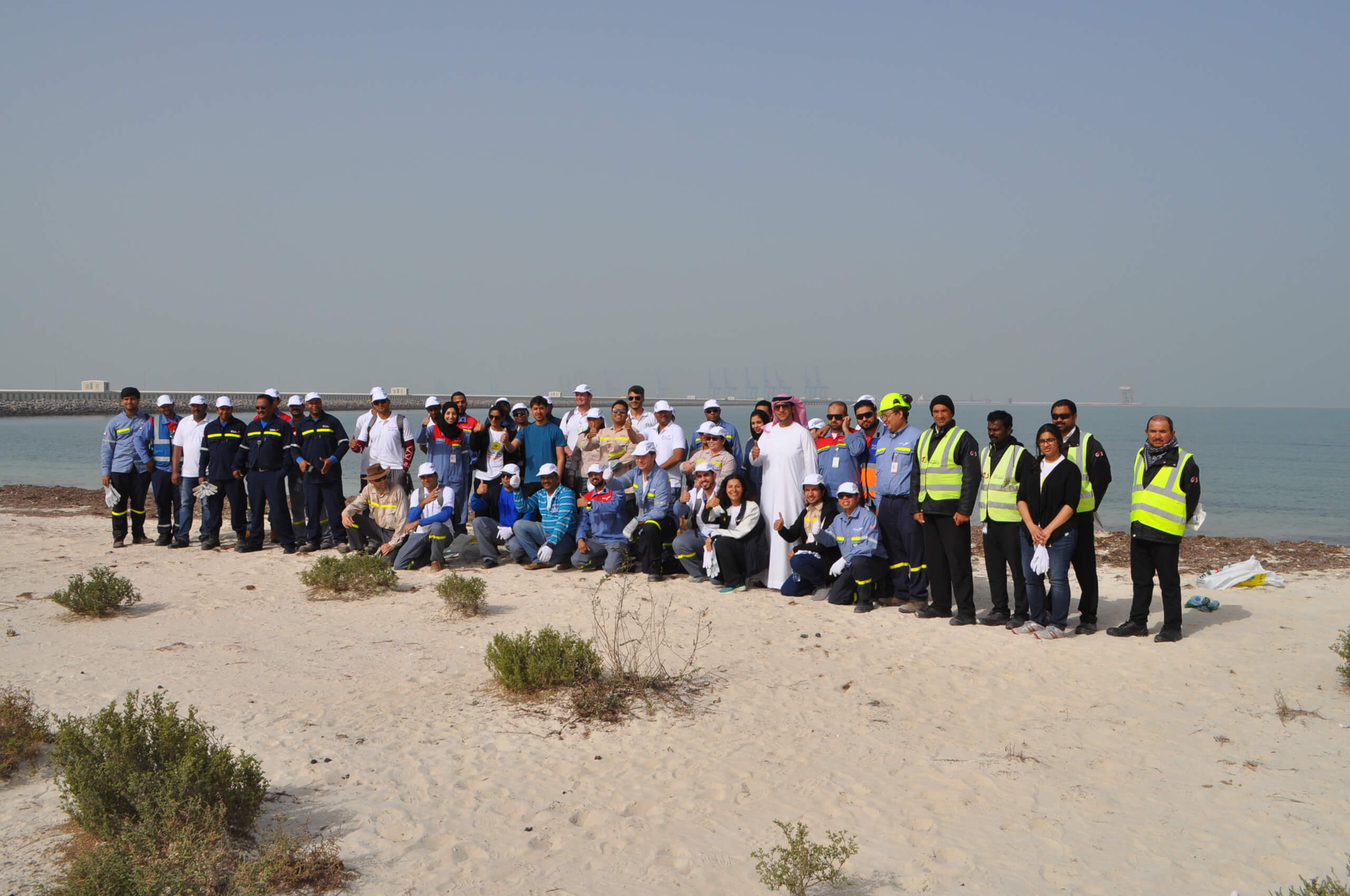
EGA now organises a beach clean-up programme with company volunteers every year. In 2019, more than 50 employees volunteered for the beach clean-up and collected almost 2.5 tonnes of washed-up beach litter. An estimated six tonnes of debris are now collected annually by EGA through daily removals during the turtle nesting season and beach clean-ups at other times during the year.
During 2018, the EGA sustainability team recorded the successful hatching of six nests with an estimated 400 hatchlings making it to the sea. In the same year, the team also rescued a number of sick turtles which were subsequently nursed back to health and released back into the sea with the help of the Dubai Turtle Rehabilitation Project.
We have worked to protect Hawksbill turtles since we began operations in this area, but we now have a more systematic approach to our conservation efforts for this species due to the Biodiversity Action Plan which we developed as part of our alignment to the ASI Performance Standard,’ Steve Bater says. ‘Now, we are continuously looking at ways to do things better; for example we have recently opened dialogue with other environmental non-profit conservation groups to help understand what more we can do.
– Steve Bater, Sustainability Manager
Read more about EGA
Consult EGA’s website
Consult EGA’s approach to sustainability
SHARE THIS ARTICLE

